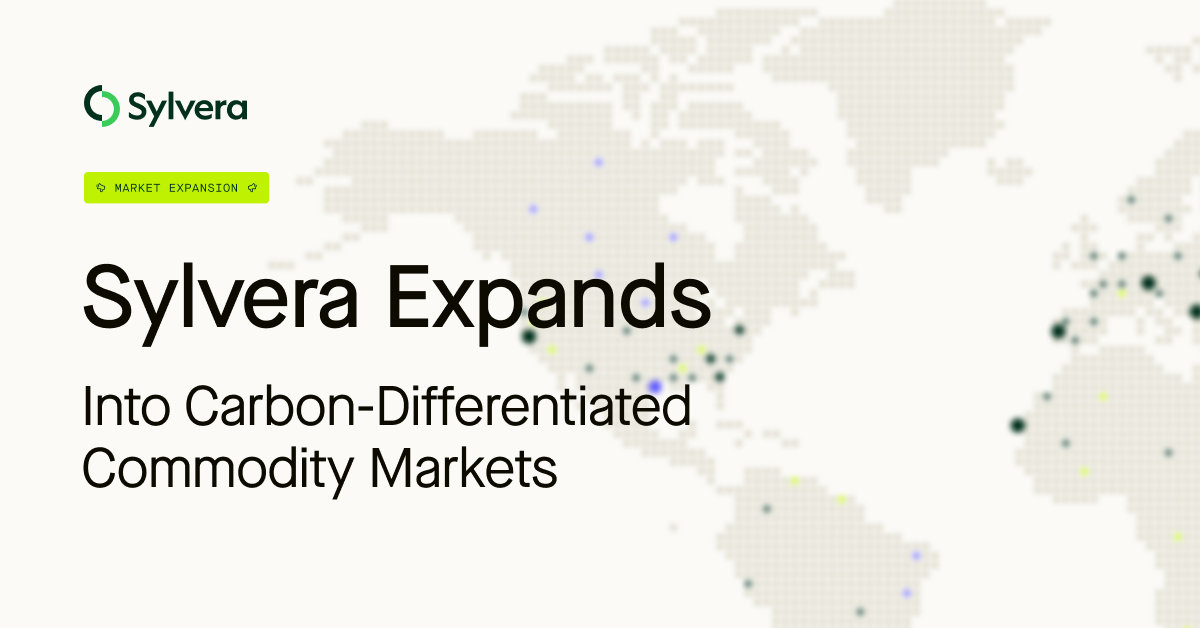“Over the years we’ve invested significantly in our field data team - focusing on producing trusted ratings. While this ensures the accuracy of our Ratings, it doesn’t allow the scale across the thousands of projects that buyers are considering.”
For more information on carbon credit procurement trends, read our "Key Takeaways for 2025" article. We share five, data-backed tips to improve your procurement strategy.

One more thing: Connect to Supply customers also get access to the rest of Sylvera's tools. That means you can easily see project ratings and evaluate an individual project's strengths, procure quality carbon credits, and even monitor project activity (particularly if you’ve invested at the pre-issuance stage.)
Book a free demo of Sylvera to see our platform's procurement and reporting features in action.
At COP30, Sylvera today announced the launch of Biomass Atlas, a breakthrough biomass data solution that transforms how forest carbon stock is measured, monitored, and monetized across voluntary and compliance carbon markets.
Built on a $10 million investment of field data collection using multi-scale lidar (MSL) technology across five continents, Sylvera’s Biomass Atlas sets a new standard for accuracy and addresses the critical challenge facing carbon markets today: Traditional plot-based sampling methods and the use of space- based lidar face critical limitations that undermine both project viability and market confidence.
The Hidden Cost of Inaccurate Carbon Data
Conventional field-based approaches typically cover only a fraction of project areas and rely on outdated sampling cycles and manual techniques prone to human error, creating critical challenges for scaling of the market.
For project developers, manual data collection is expensive, time-consuming and difficult to maintain, leading to uncertainty and inefficiency across portfolios. While for buyers and registries, the lack of independent and comprehensive verification undermines trust, as demonstrated by recent market controversies that led to the cancellation of over 15 million carbon credits.
"Carbon markets need a data infrastructure that works for both sides of the transaction," said Dr. Allister Furey, CEO and co-founder of Sylvera. "Biomass Atlas is the first product that delivers the accuracy, scalability, and independence that project developers need to build credibility, while giving registries and buyers the transparent, field-validated grounding required to restore market confidence."
Precision That Drives Economic Value
Accurate biomass estimation is the foundation of credible carbon accounting and market integrity, ensuring that climate action delivers measurable results. Through its field-validated methods, Biomass Atlas achieves project-area errors below 10% for projects over 400ha, enabling developers, registries and governments to measure and verify forest carbon with confidence.
This level of precision strengthens the credibility of carbon credits, supports NDC requirements and helps ensure that projects are appropriately valued.
"Whether you're developing projects, issuing credits, or building policy infrastructure for Article 6 implementation, Biomass Atlas provides the verification foundation that modern carbon markets demand," added Furey. "By solving the fundamental challenges of accuracy, scalability, and cost that have held back traditional MRV, we're enabling markets to operate with the transparency and confidence needed to drive real climate impact."
Organizations can access Biomass Atlas directly through Sylvera or via channel partners Cecil, reflecting growing market demand for independent, field-validated carbon data infrastructure.
Efficiency And Scalability In Action
Through improved baseline accuracy and forecast reliability, the solution eliminates the need for expensive in-house data collection and modelling infrastructure. Projects can be monitored and updated in days rather than months, enabling faster verification cycles and improved investment confidence across portfolios.
Already, the technology is proving its impact in the field. In Brazil, Sylvera is working with the State of Acre to independently assess forest carbon credits and support jurisdictional REDD+ programmes that meet the highest integrity standards. In the UK, collaborations with the Woodland Carbon Code, Scottish Forestry and IUCN UK PP are integrating field-calibrated Earth observation into the country’s forest carbon monitoring and issuance processes, helping to establish new best practice for national-scale transparency and accountability.
Request access to Biomass Atlas here.












